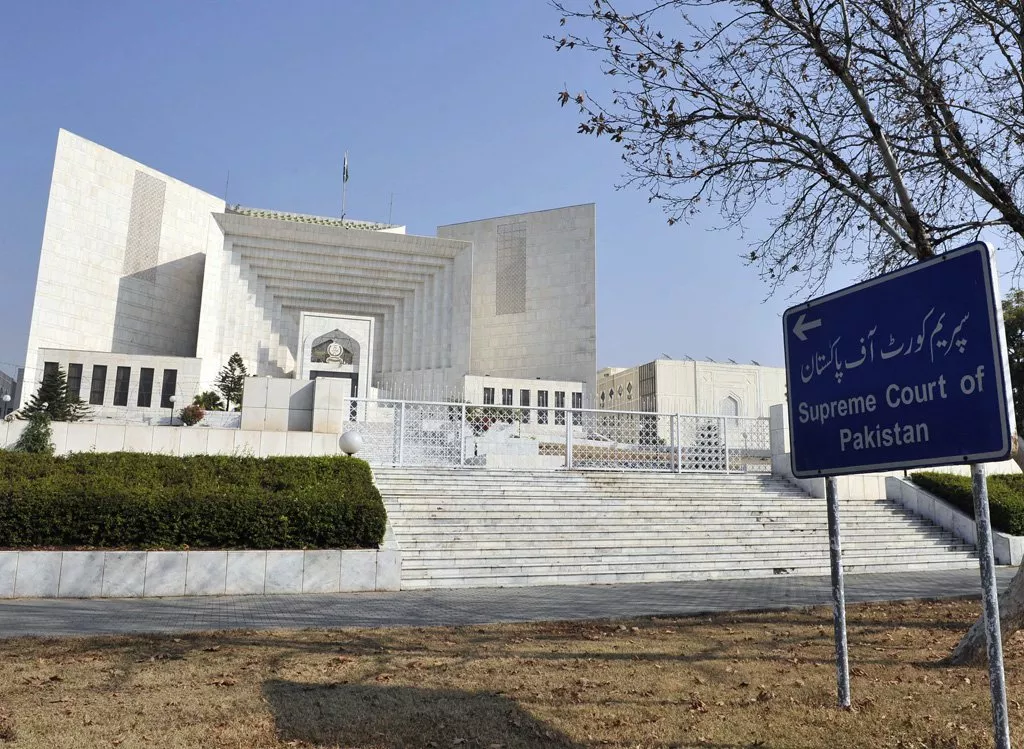Pakistani courts reduce workload in view of pandemic
NJPMC says prisoners be protected from COVID-19 without denial of right of family meetings
ISLAMABAD: The National Judicial Policy Making Committee (NJPMC) has decided that courts will remain open at all levels by reducing the judicial workload so that the people working in courts or visiting them are not exposed to any risk of getting affected by novel coronavirus, COVID-19.In its meeting held on Thursday, the NJPMC – an administrative body of superior court judges – urged people not to unnecessarily visit court premises unless specifically required by any court.
Chief Justice of Pakistan Gulzar Ahmed – who heads the committee – made it clear that “we will not compromise on our judicial system and not let it be derailed by getting panicked as people of Pakistan have great deal of confidence on judicial system so we will never disappoint them.”
The meeting, attended by senior most SC judges and all chief justices of high courts, was convened to discuss the prevailing situation in the wake of coronavirus, COVID-19, outbreak in the country.
Special Assistant to the Prime Minister on Health Dr Zafar Mirza, and the Judges Medical Centre In-charge Dr Khurram Shahzad Akram also attended the meeting on special invitation.
The meeting resolved that protocol of health and hygiene would be ensured and adopted at courts.
In this regard like high courts, district courts will also reduce the work by hearing only urgent matters and discouraging the entry of general public. They will also conduct screening tests of all persons entering the court premises.
It also resolved that no adverse order against any party would be passed in the courts in default, ie, non-prosecution or ex-parte order, etc.
SC judge Ijazul Ahsan who is also chairman of the Supreme Court Health and Safety Committee was nominated as the focal judge responsible to ensure implementation of the NJPMC directions.
The Federal Shariat Court and the high courts would also nominate a focal person to maintain liaison among the judiciary, government departments and relevant authorities.
The chief justices of high courts will take such additional steps including administrative measures in consultation with provincial health authorities as may be deemed necessary.
In order to ensure uniformity, the focal judge of the Supreme Court shall be kept in the loop before such additional steps and measures are implemented.
It was unanimously agreed that all these measures are taken for three weeks. After this period, these steps will be reviewed according to the prevailing situation of the county.
During the meeting, the CJP remarked that the prevailing situation of pandemic in the country required special attention and practical actions. He said the Supreme Court has already issued instructions regarding preventive measures to minimize the spread of COVID-19.
“The apex judiciary of the country will ensure and take all the necessary preventive measures for health and safety of our judges, court staff, lawyers, litigants and other stakeholders up to the district and tehsil levels,” he said.
He said detailed instructions have already been issued to all high courts to take all possible preventive measures by way of case management to ensure that the courtrooms are not crowded and physical contact between individuals attending the courts is avoided.
The NJPMC secretary briefed the committee about the prevailing situation of coronavirus. He also informed the committee about preventive measures taken by the Supreme Court to curb the virus on the court premises.
The committee directed authorities that prisoners shall be protected from being exposed to the risk of coronavirus without denial of their right of family meetings. However, authorities will make sure to adopt precautionary measures and regulate the procedure of meetings.
It said people visiting jail premises should be examined and properly screened to avoid any threat of infection to the prisoners. If any of the prisoners is found infected, he will be quarantined within jail premises without any delay.


COMMENTS
Comments are moderated and generally will be posted if they are on-topic and not abusive.
For more information, please see our Comments FAQ